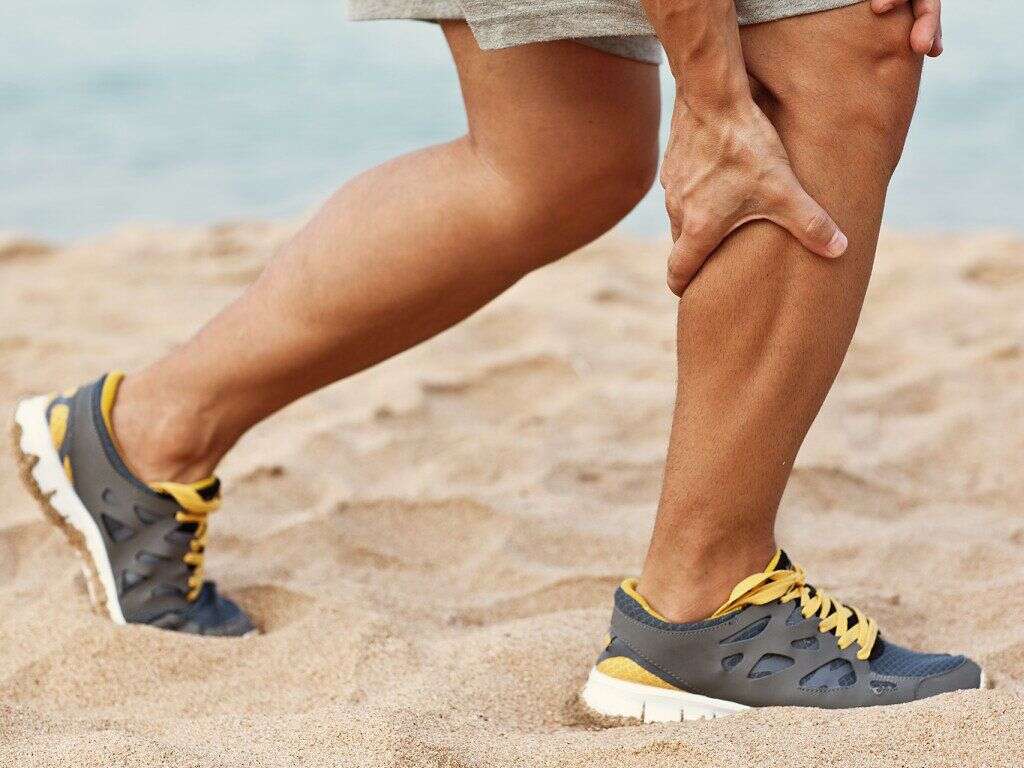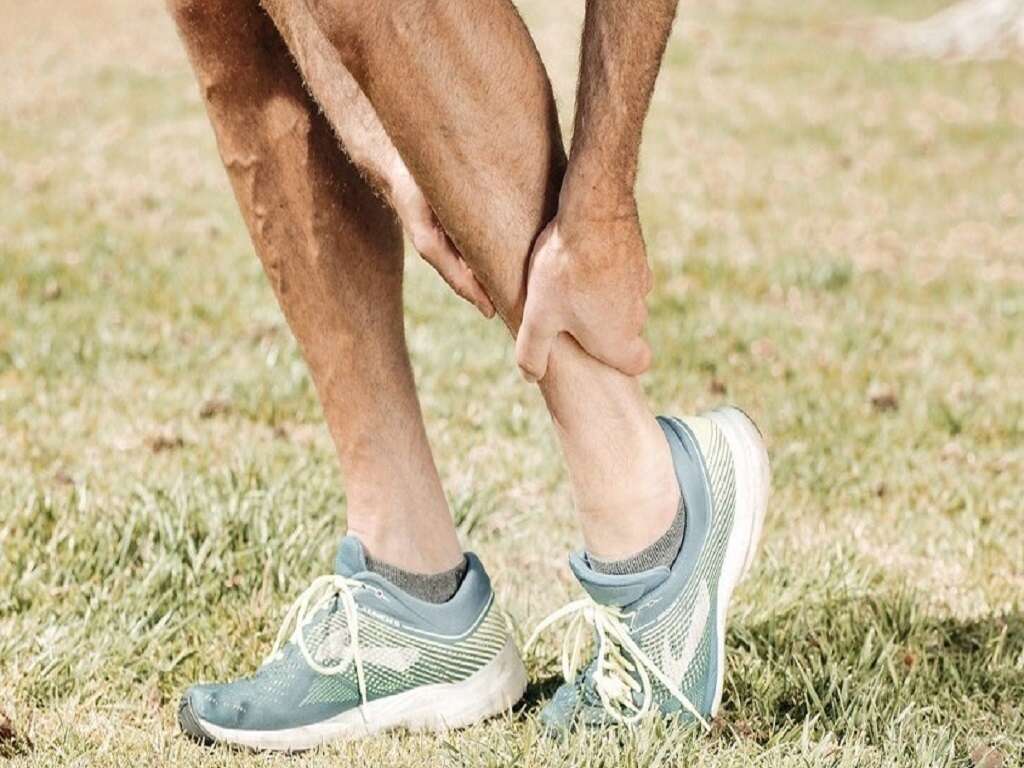10 Causes of Leg Cramps
Cramps occur when there is a sudden muscle contraction that is involuntary, causing pain and transient paralysis-like immobility. It usually occurs suddenly and resolves on its own after a while. Cramps can occur in both skeletal and smooth muscles. Once the cramp resolves, there can be residual muscle soreness.
It happens more often among those who exercise at night, older individuals, and teenagers. Although it is harmless, it can cause distress and anxiety especially if it recurs and takes a while to resolve. Affected individuals are advised to try massages, gentle stretching, taking a warm shower, warm bath, or putting light pressure on the cramping leg by walking or standing to help relieve the cramp.
If residual pain or soreness is severe, over-the-counter pain medication such as paracetamol (acetaminophen) and nonsteroidal anti-inflammatory drugs (NSAIDs) may be beneficial to help control the pain.
Cause #1: Peripheral Neuropathy
Peripheral neuropathy is caused by diseases that affect the peripheral nerves. The peripheral nerves are those that are beyond the brain and spinal cord. Damage to the peripheral nerves can cause impaired sensation, difficulty with movement, and disruption of the function of the affected nerves. The onset of peripheral neuropathy can be acute or gradual. Depending on the disease, peripheral neuropathy can be either permanent or temporary.
Examples of diseases that can cause peripheral neuropathy include leprosy, nutritional deficiency, diabetes, and chemotherapy. Peripheral neuropathy can lead to muscle loss, bone degredation, spasms, fasciculations, and changes in the skin, nails, and hair.
Cause #2: Liver Disease
Liver or hepatic disease refers to damage to the liver. There are many different diseases of the liver that can lead to jaundice and weight loss. Some examples of liver disease are hepatitis, fascioliasis, fatty liver disease, alcoholic liver disease, and liver cancer.
Leg cramps can occur in patients with liver disease as there is accumulation of toxins in the body leading to cramps and spasms. The liver functions to excrete and rid the body of toxins. Once diseased or damaged, it can no longer function properly. Treatment of liver disease depends on the type.
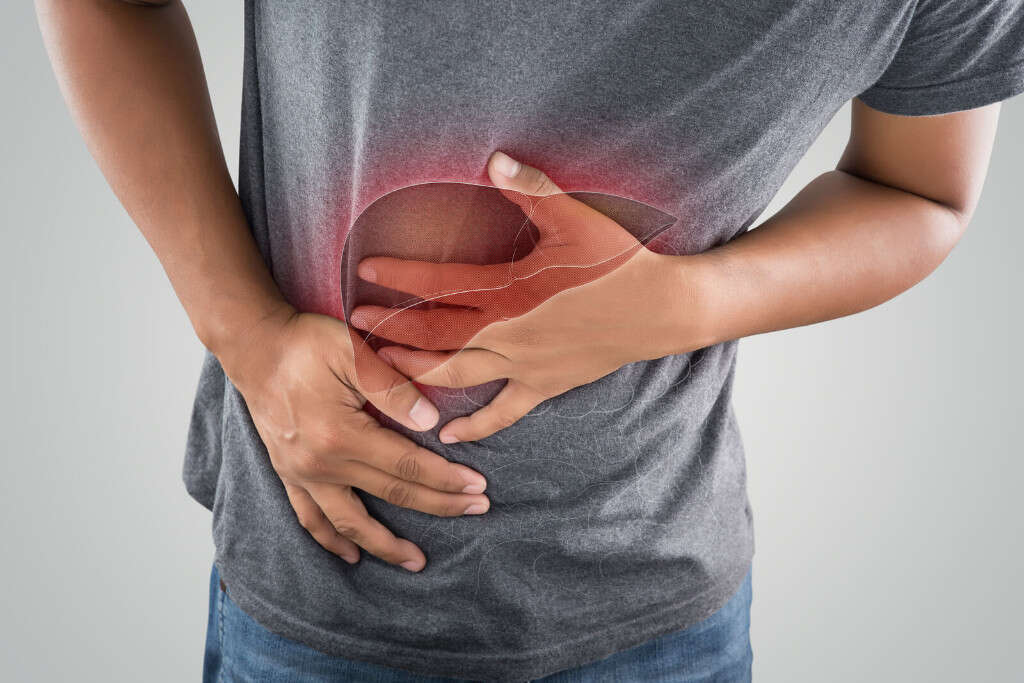
Cause #3: Infection
Infection refers to the invasion and multiplication of pathogens in the host tissue such as viruses, bacteria, prions, parasites, fungi, and arthropods. The increased number of pathogens may also lead to the production of toxins. Depending on the immune system of the host, there is a possibility that the infection may resolve if the body is able to fight it off in its own. If not, treatment depends on the underlying cause of the infection and may involve the use of antivirals, antibiotics, anthelminthics, and antifungals.
Some infections can cause muscle spasms and cramps. An infection by Clostridium tetani can lead to severe muscle spasms and cramps of the body including leg cramps. The spasms have been described to be so intense that it can cause bone fractures.
Cause #4: Dehydration
Dehydration occurs if there is deficit in total body water resulting in disruption of the body’s metabolic processes. This occurs if there is excessive loss of water compared to intake of water due to exercise, climate, or disease.
Dehydration can cause symptoms such as dizziness, fatigue, confusion, physical deterioration, mental deterioration, headaches, general discomfort, seizures, and muscle cramps including leg cramps. Leg cramps occur as deficit in total body water can cause decreased salt levels.
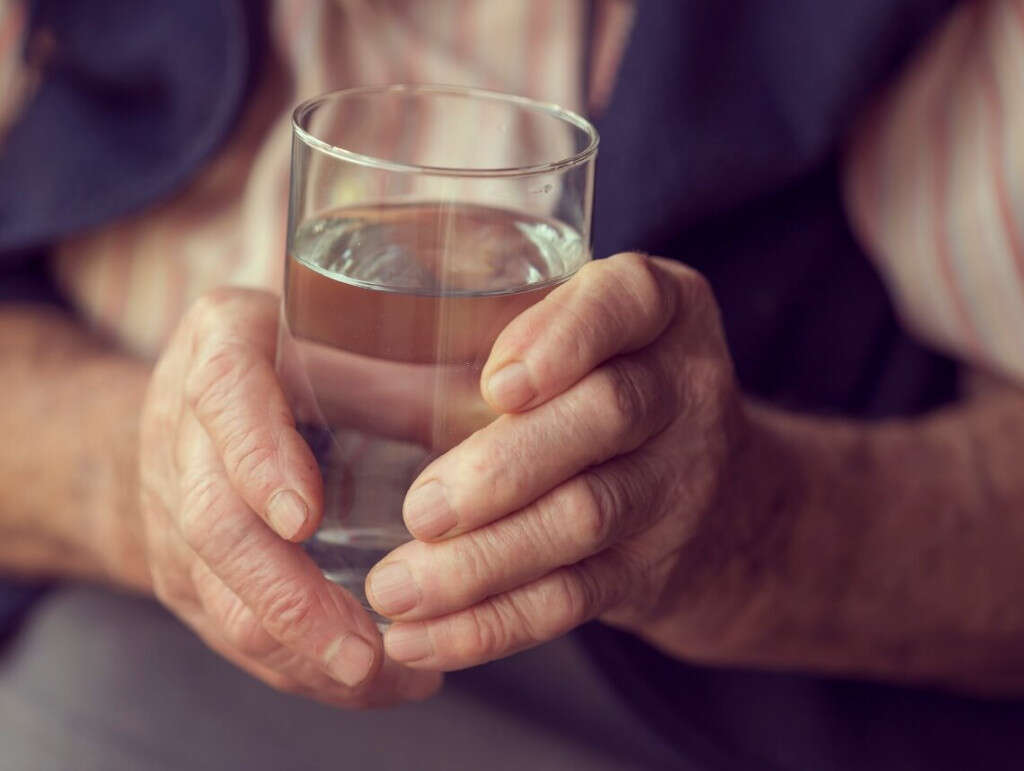
Cause #5: Motor Neuron Disease
Motor neuron disease occurs when there is disease that affects the cells that control the voluntary muscles of the body. Some examples include monomelic amyotrophy, amyotrophic lateral sclerosis or Lou Gehrig’s disease, progressive bulbar palsy, and pseudobulbar palsy. Motor neuron disease can affect both children or adults.
While it usually causes movement issues, the most commonly observed symptom is muscle weakness. Other symptoms include breathing issues, muscle spasms, muscle cramps such as leg cramps, difficulty speaking, and issues with swallowing. Leg cramps occur if the nerves supplying the leg muscles are affected by the disease.
Cause #6: Toxins
Toxins are harmful substances that can cause harm or disease when absorbed by or come into contact with the body. The toxicity can range from mild to deadly.
Depending on the individual, some toxins can cause leg cramps. For example, high levels of mercury or lead in some can cause cramps and spasms. Mercury poisoning may also lead to numbness in the peripheries, skin rashes, muscle weakness, visual issues, difficulty speaking, hearing loss, and memory problems. Lead poisoning may cause irritability, memory issues, headaches, abdominal pain, anemia, and seizures.
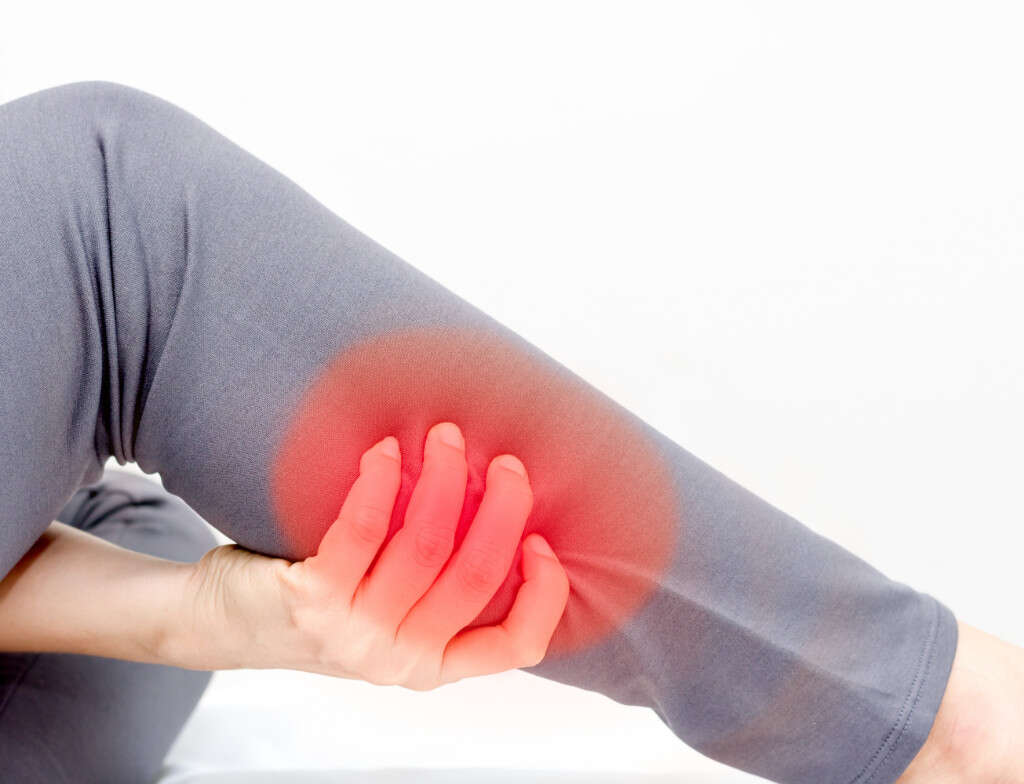
Cause #7: Pregnancy
Pregnancy is a common cause of leg cramps. Many pregnant women often experience this issue and it can be distressing. While the exact correlation between leg cramps and pregnancy is still unclear, it has been postulated to be due to fatigue. As the uterus continues to enlarge due to the growing fetus, the additional pressure compresses the nerves and can cause decreased blood circulation in the legs, which is a potential contributing factor for leg cramps.
In pregnancy, leg cramps can also occur due to magnesium deficiency, calcium deficiency, and dehydration. Pregnant women who experience leg cramps can flex the foot by lifting the toes toward the body and massage their legs to reduce the occurrence of cramps. They should also avoid sitting or standing for a prolonged duration, stay hydrated, and take the necessary supplements.
Cause #8: Nocturnal Leg Cramps
Nocturnal leg cramps are extremely common as observed in about 60 percent of the adult population. The recurrent cramps in the calf muscles can lead to severe insomnia. While the mechanism or cause is unknown, the cramps have been thought to be due to nerve dysfunction and muscle fatigue.
Nocturnal leg cramps have been associated with various medical conditions and medications. There is limited evidence that supports the treatment of nocturnal leg cramps. Some may benefit from vitamin B12 supplements, stretching, and mild exercise.

Cause #9: Medications
Medications are necessary in the treatment and prevention of disease. However, all medications have their own potential side effects depending on each individual that takes the medication. When taking some medication, such as statins and diuretics, leg cramps may occur.
Statins are a class of drug that have been used in the treatment of high cholesterol levels. Diuretics can be used in the treatment of heart failure, kidney disease, and high blood pressure through the removal of fluid from the body. Other medications that may cause leg cramps are nifedipine, nicotinic acid, and raloxifene.
Cause #10: Exercise
Exercise is an activity performed for health and fitness. It also helps with the development and growth of muscles, improves the cardiovascular system, helps with weight loss, and can slow aging. Generally, in adults, it has been recommended that an average of 150 minutes of moderate activity or 75 minutes of vigorous activity should be performed every week. It has been shown to reduce the risk of cancer, type 2 diabetes, cardiovascular disease, hypertension, and high cholesterol levels.
Exercise has been proven to have both immediate and long-term benefits. However, when performed excessively or when performed by an individual used to a sedentary lifestyle, it places strain on the muscles of the body including the legs and can lead to leg cramps, especially when resting after exercise.








